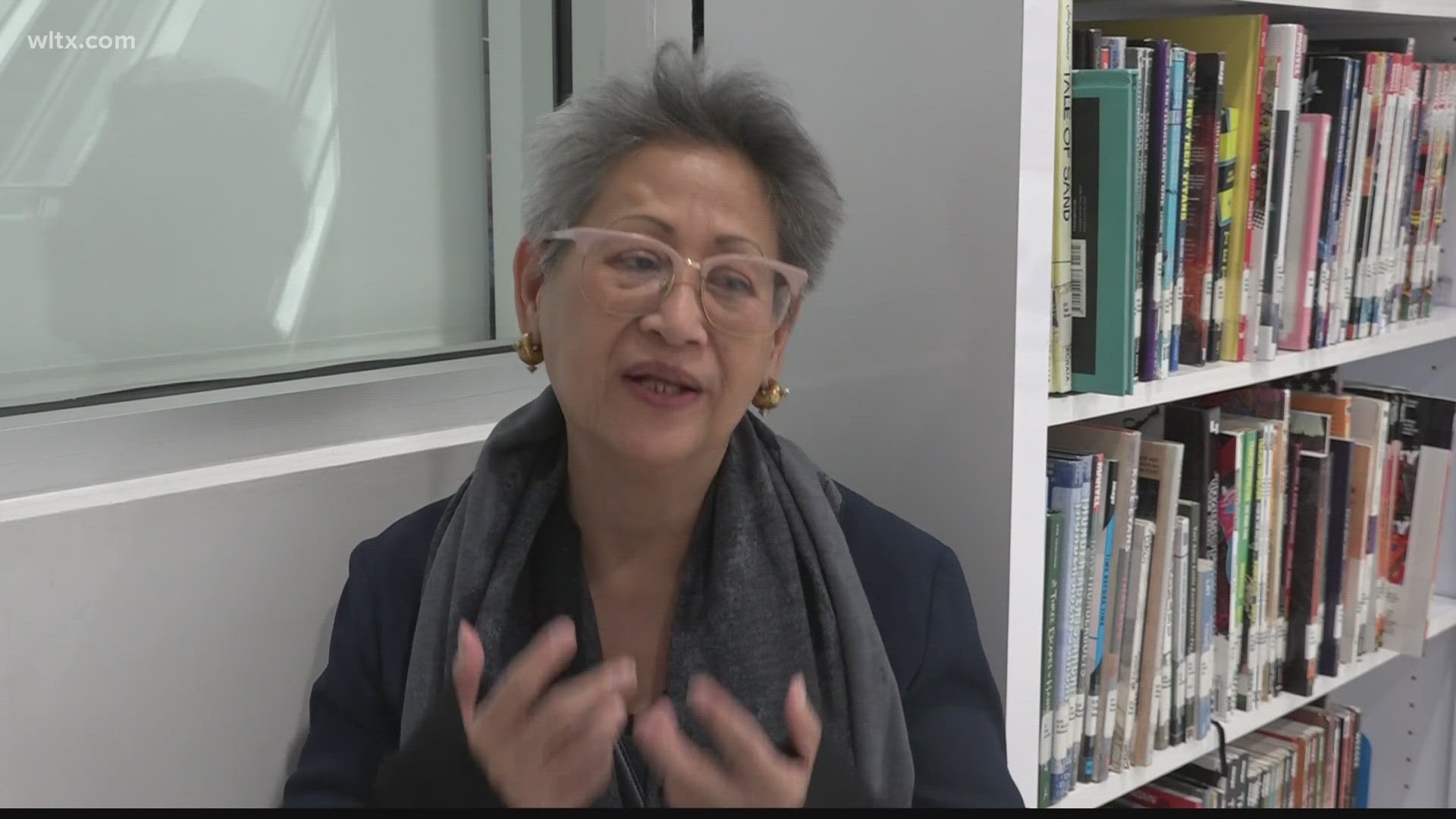COLUMBIA, S.C. — The public was welcomed into the Richland Library's main campus on Sunday to learn more about Filipino culture, traditions and origins as part of Filipino-American History Month.
"I did not know anything about these textiles and how intricate the textile work was," Gene Callahan said.
Callahan was one of a few dozen people who spent the day learning more about Filipino history.
Marian Roces is a famed Filipino curator, author and founder of a museum development corporation in the Philippines called TAO INC.
She visited the Richland County Library on Sunday to share significant discoveries she's made about the origins of Filipino culture.
"It has become clearer and clearer to me over the last, perhaps, three decades that the narrative of what the Filipino is is going further and further away from scientific support," Roces said.
Through research and involvement with significant grants, policy work and projects, Roces has been a keynote speaker at museums worldwide.
"Most Filipinos and the world do not know the consensus in archaeology that a group of people who spoke the languages that we speak now arrived in the Philippines 4,000 years ago," Roces said.
She said there are about 170 Austronesian languages in the Philippines, boats were critical to the early Filipino origins, and Filipinos share culture and rituals with people from Madagascar and Easter Island. Meanwhile, textiles also have a role to play in this rich cultural history.
Roces said that creating textiles is intricate, detailed and time-intensive, often taking a year to finish one textile garment. She said the textile measurement is often in millimeters, and the grandmothers in the family always memorize the pattern.
Roces said this history has gone untold because of colonization and damage to Manila and its national museum from World War II.
"We live in a society with people coming from many different cultures, so it's good to understand each other as best we can," Callahan said.
Nieves McNulty, a Filipino-American Association of Greater Columbia member, said Sunday's lessons were far different from anything seen in old history textbooks.
"The cultural migration came from the Philippines to go all over the Pacific Ocean. That's new to me. Because we were always taught in school, in history classes, that it was from Indonesia and Malaysia people migrated to the Philippines," McNulty said.

